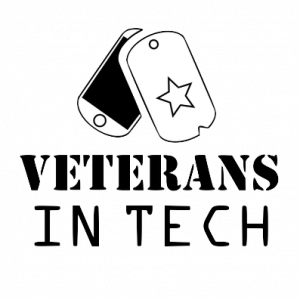Transitioning veterans are slowly approaching a critical point in history where they may no longer be directly hirable by the private sector. With technological innovation over our nation’s history, veterans traditionally transitioned seamlessly from a role within the military to a civilian career of equal pay and responsibility. However, as the world continues to innovate, our military and defense forces are still operating and training with Cold War Era technologies. This lack of organizational and operational innovation may have huge repercussions on our transitioning veteran community.
A sizable impact will be seen in the automotive and mechanical industries. Traditionally, the veteran community was able to translate military mechanized skills to civilian markets. However, as companies such as Google and Uber transition their business models to self-driving automobiles, the Department of Defense writ large has done little to address techno-mechanical innovation. This lack of innovation and implementation is not only damaging to national defense but to our transitioning service members as well as they lack critical civilian-equivalent skills.
Elon Musk’s fossil-fuel revolution furthers this gap as the Department of Defense has yet to adopt a formalized plan to implement solar and battery technologies. The private sector is responding and reacting to consumer demands for clean, efficient and scalable energy solutions yet the DoD has failed to make the leap. Musk’s Tesla, in partnership with Solar City, is leading the charge and laying the foundations for a  potentially all electric future. In response to this competition in the marketplace, companies such as Daimler, Chrysler, Ford, and Volkswagon are all building battery production facilities. The outcome is still unclear but will almost certainly rely on a highly trained and knowledgeable workforce. Unfortunately, without such technologies, some may question the employability of our transitioning veterans and how they will be able to bridge this knowledge gap.
potentially all electric future. In response to this competition in the marketplace, companies such as Daimler, Chrysler, Ford, and Volkswagon are all building battery production facilities. The outcome is still unclear but will almost certainly rely on a highly trained and knowledgeable workforce. Unfortunately, without such technologies, some may question the employability of our transitioning veterans and how they will be able to bridge this knowledge gap.
When addressing the issue of bridging the carbon-to-electric or mechanical-to-technical, civilian models exist. Companies such as SAE international and EVITP provide training programs to those who are interested in making the technological leap and are willing to pay a fee. Though available to the general public and ultimately veterans, these programs carry hefty price tags and are not necessarily covered under the G.I. Bill. Furthermore, these programs do not have formal placement incentives for military veterans. In other words, there is no guarantee or even a healthy track record of employment upon completion.
Another area of concern for future transitioning veterans is career placement in technology management and sales careers. Traditional placement companies have held onto a large share of the transitioning military population because of their unique ties to the private sector. However, as industries become more technically advanced, they will require their management and sales teams to have the same understandings of such technologies. Therefore, placement companies may have a difficult time finding good jobs for veterans without transitional training. Bottom line for veterans: breaking into tech is not easy — and it’s only getting harder.
A potential bridge for the civilian-techno gap is illustrated in companies such as Tech Qualled, Coursera and Udacity. These organizations provide tech-centric training programs that address the critical tech-training to employment gap. Coursera and Udacity are not specifically designed to support the veteran community but have teamed up with some very prominent players in the tech space to develop innovative  curriculums for those interested in careers in virtual reality, artificial intelligence and self-driving vehicles; basically, the jobs of tomorrow. In contrast, Tech Qualled takes a slightly different approach by focusing solely on military veterans. They train selected veterans over a period of 8 weeks, both online and in-residency in Fort Worth, Texas. Tech Qualled also provides the benefits of placement at the conclusion of its formalized training program with a 95% placement rate.
curriculums for those interested in careers in virtual reality, artificial intelligence and self-driving vehicles; basically, the jobs of tomorrow. In contrast, Tech Qualled takes a slightly different approach by focusing solely on military veterans. They train selected veterans over a period of 8 weeks, both online and in-residency in Fort Worth, Texas. Tech Qualled also provides the benefits of placement at the conclusion of its formalized training program with a 95% placement rate.
Whether a traditional placement company, a training-only company or a combination of the two, the veteran community requires greater assistance in developing technological-centric business acumen. Companies such as Tech Qualled may be the future standard for private-sector veteran employment assistance. Requiring veterans to train with one company and place with another, with no continuity between the two, may be too great of a burden to place upon our nation’s finest.
————-
Jason Tebedo is a retired U.S. Army Major and graduate of the Naval Postgraduate School. Jason holds a Bachelors in Sociology and a Masters in Information Strategy and Political Warfare. He has three combat rotations and is a recipient of two Bronze Stars.
